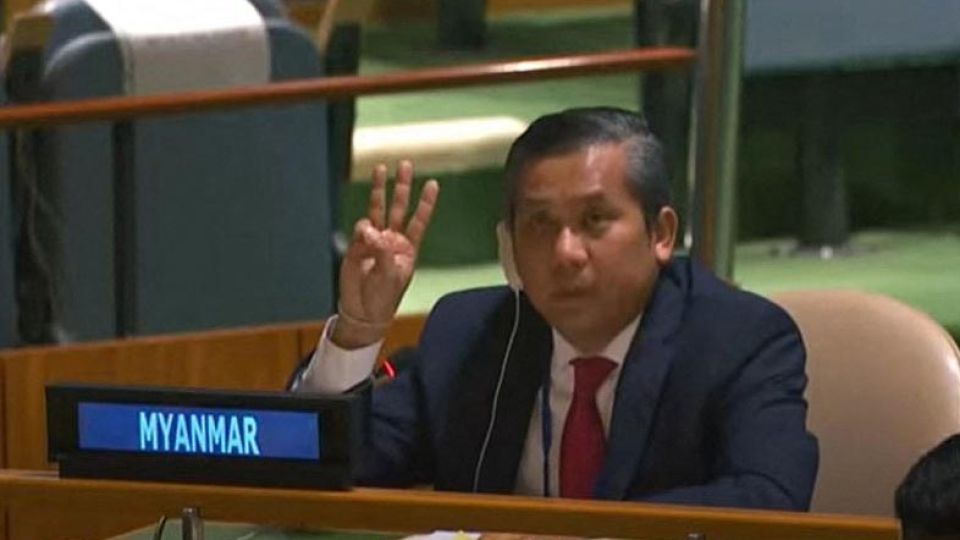May 13, 2022
JAKARTA – This Friday, while United States President Joe Biden hosts a special summit with leaders of ASEAN to mark 45 years of partnership, a crisis rages on in Myanmar.
Myanmar, one of ASEAN’s 10 members, has spiraled into a state of chaos and violence since the Myanmar military overthrew the country’s democratically elected government in February 2021. The coup d’état abruptly ended a decade of democratic reforms that had brought a democratically-elected government to power, reflecting the will of the people of Myanmar.
As elected representatives from the US and Southeast Asia, we are appalled by the abuses perpetrated by the Myanmar military and are joining together on the occasion of the US-ASEAN summit – in the true spirit of US and ASEAN partnership – to demand a strong, coordinated, and global response to the devastation wrought at the hands of military leaders in Myanmar.
Since the 2021 coup, the Myanmar military has been engaged in an all-out assault against political opponents, journalists, health workers, and civilians, killing at least 1,800 people, including children, and arresting more than 10,000 people. The United Nations High Commissioner for Refugees counts nearly 300,000 internally displaced people inside the country since the coup, with 25,000 having fled across borders to neighboring countries.
Yet, the response of the international community has been clearly insufficient. The UN Security Council has failed to adopt a global arms embargo, a coordinated sanctions regime, or to successfully negotiate the delivery of humanitarian aid. The military government continues its campaign of repression against its own citizens with impunity. This inertia is likely to persist, given that the junta is protected by the Russian and Chinese governments.
That is why it is imperative for ASEAN and the US to come together on a course of action that will alleviate the suffering of Myanmar’s people and restore their democracy.
Some positive steps have been taken in that direction. On March 21, US Secretary of State Antony Blinken declared the crimes, beginning in 2017, committed against the Rohingya people by the Burmese military as genocide and crimes against humanity. This is an important step on the path to accountability and justice but alone will not be enough.
Over the last year, the US government has imposed targeted sanctions on Commander-in-Chief of the Myanmar military Min Aung Hlaing and his henchmen, and has blocked the junta from withdrawing US$1 billion dollars held at the Federal Reserve Bank of New York. The European Union, the United Kingdom, and Canada have also imposed their own sanctions and arms embargoes.
Meanwhile, ASEAN has taken the unprecedented measure of refusing to invite Min Aung Hlaing to its annual leader’s summit, and agreed in April 2021 to a five-point consensus that includes demands for an end to the violence and dialogue between all parties, the appointment of a Special Envoy to Myanmar, and the provision of humanitarian aid.
None of that, however, has deterred the junta. As the situation in Myanmar continues to deteriorate, the international and regional response must be escalated. Here’s what we recommend:
The US should take a page from the smart playbook it has deployed against Russia for its war of aggression in Ukraine by doubling down on punishing sanctions, and include the Myanmar Oil and Gas Enterprise (MOGE), a state conglomerate that the junta seized shortly after the coup. The military has seized an estimated $1.5 billion in gas revenues and is using these funds to tighten its undemocratic grip on power.
While the US can play an important role, ASEAN should lead the way in resolving the Myanmar crisis and restoring the democratically-elected government of Myanmar.
It is evident that the junta has totally failed to comply with the Five-Point Consensus, and this should come with consequences. Now is the time for ASEAN to adopt much stronger measures, including the suspension of Myanmar’s ASEAN membership, travel bans in the region, and targeted sanctions against the leaders of the coup.
Both ASEAN member states and the US should bolster the legitimacy of the National Unity Government of Myanmar (NUG). It represents the democratically-elected government and receives support from the majority of the Myanmar people. Senior Biden administration officials have met with NUG officials, and recently the foreign minister of Malaysia announced that he had held informal conversations with NUG officials. These are encouraging steps, but more engagement with the NUG is needed.
Finally, the US and ASEAN must work together on delivering urgent humanitarian aid. International NGOs estimate that over 14 million people in Myanmar are in need of assistance. This aid should be channeled through locally trusted community-based and civil society organizations to effectively reach those that need it the most.
The US, ASEAN member states, and neighboring countries like Thailand should open their doors to refugees fleeing persecution and violence in Myanmar.
We have joined together, parliamentarians from opposite sides of the globe, because we share the same concern with the crisis that has unfolded in Myanmar. The people of Myanmar are victims of crimes against humanity so severe that they are a stain on our common humanity. They concern us all. The US, ASEAN, and partners like the EU, the UK, Japan, Australia, and India, have a responsibility to act in the face of such atrocities.
ASEAN should lead the way in these global efforts to stop the crimes being perpetrated by the military junta in neighboring Myanmar, hold leaders accountable, and protect the Myanmar people who are suffering so grievously under their yoke.
The US should use its position as a global leader for good by backing these efforts. This is what the next chapter of a strong US-ASEAN partnership can accomplish.


